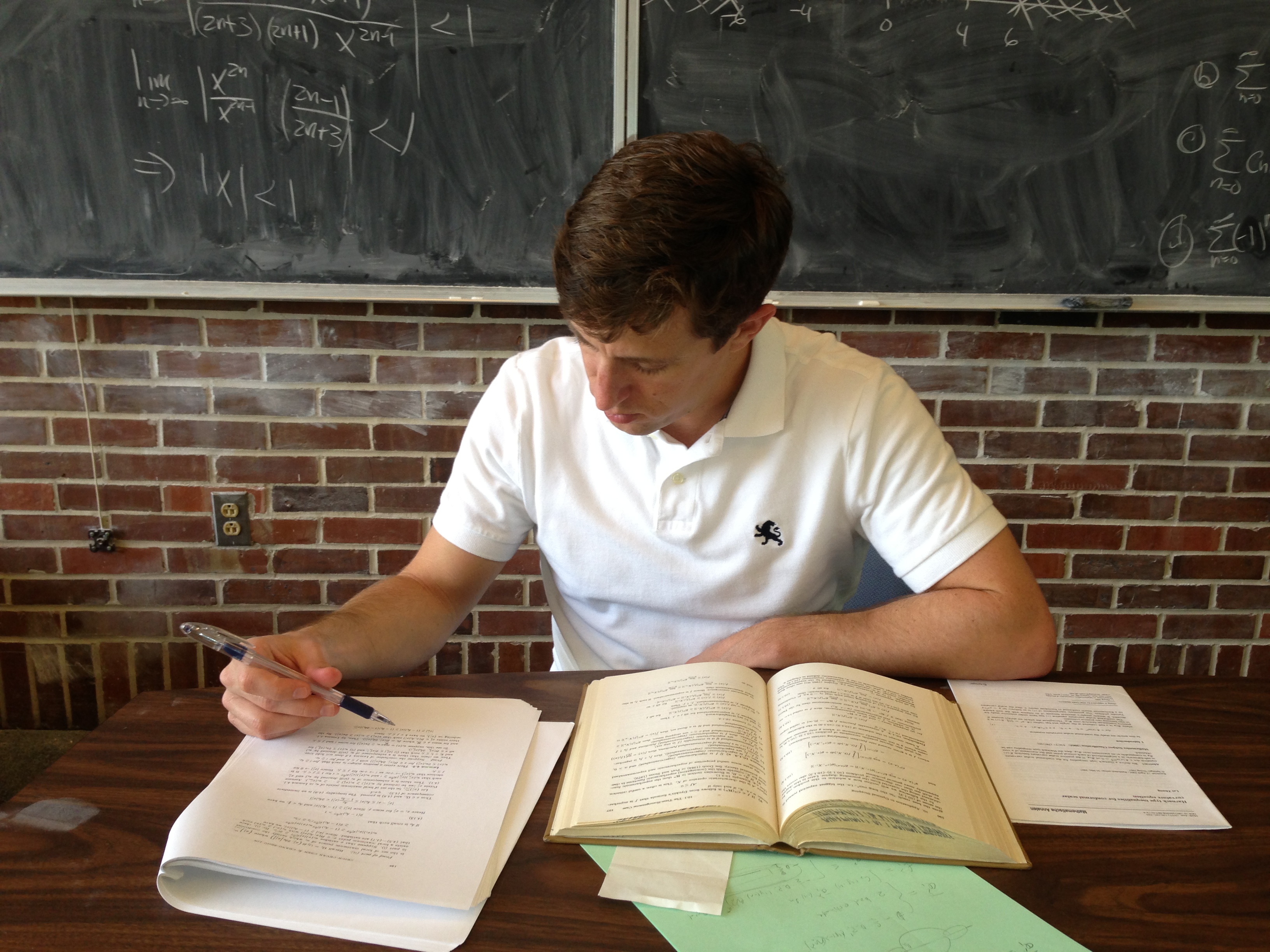Master’s students present their research in a Master’s Thesis and doctoral students write their results up in a dissertation.
Writing your thesis/dissertation: overview
The thesis/dissertation is the final product of your graduate school career. Writing it could be a very time-consuming and difficult thing you will do while in grad school. It is a very good idea to record your results as your research progresses, rather than waiting to write everything up when you are done. For example, TeX-ing up a quick draft of a key lemma or example is much easier right after you’ve proven it and it is fresh in your mind, compared to trying to reconstruct it months later. These Tex files can then serve as building blocks when you begin writing your thesis. It is also a good idea to construct a bibliography as your research progresses; every time you come across a book or paper that is helpful you can add it to your bibliography, so that you don’t have to try to produce one from scratch just a few months from your expected date of defense.
It is an unfortunate fact that sometimes what you have tried so hard to prove has been done by somebody else. Thus it is a good idea to be well informed of what other people in your field are doing. On one hand this will reduce the chance of proving a known result, on the other hand, other people’s research may be a good source of motivation for your work. Make sure to have a good communication with your advisor, since it is very possible that your advisor’s expertise and experience will make your thesis/dissertation more valuable.
When you have enough results such that you and your advisor are satisfied, you need to organize your work into one coherent document. This can be a highly non-trivial task! Your advisor will give you guidance on how to organize and present what you’ve done. Make sure that your problem is stated clearly, along with why it is important, and how you solved it. Your thesis shouldn’t simply be iterations of lemma-theorem-proof-corollary, rather there should be quite a bit of prose to explain the broader mathematical picture of your subject area, and how your work fits into it. What is the motivation for even thinking about this problem? The more people that find your research interesting, the better.

Technical Issues
There are numerous technical requirements that the graduate school has in place for how your theses should be formatted. There are too many of them to record here; check the Graduate School Editorial Office web-page for all the details:
http://gradschool.rgp.ufl.edu/editorial/format.html
It is very important to schedule an appointment with the Application Support Center (http://etd.circa.ufl.edu) well before the First Submission deadline, so that they can check the formatting of your thesis (margins, bibliographic style, etc.) If you do not do this, it is very likely your first submission will be rejected. See webpages in the Graduate Catalog for full details:
http://gradcatalog.ufl.edu/content.php?catoid=2\&navoid=760\#Doctor of Philosophy
Before you are allowed to submit the first draft of your thesis you need to write a letter of transmittal(cover letter).